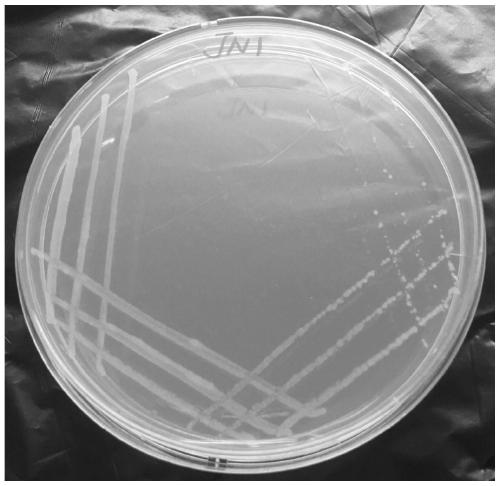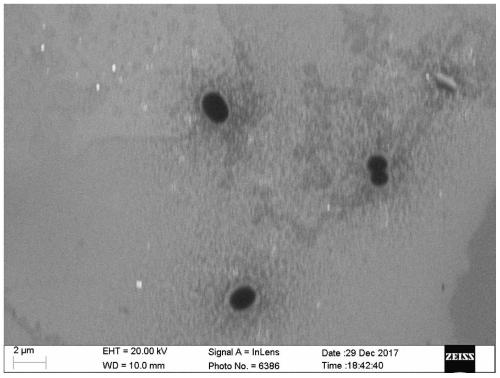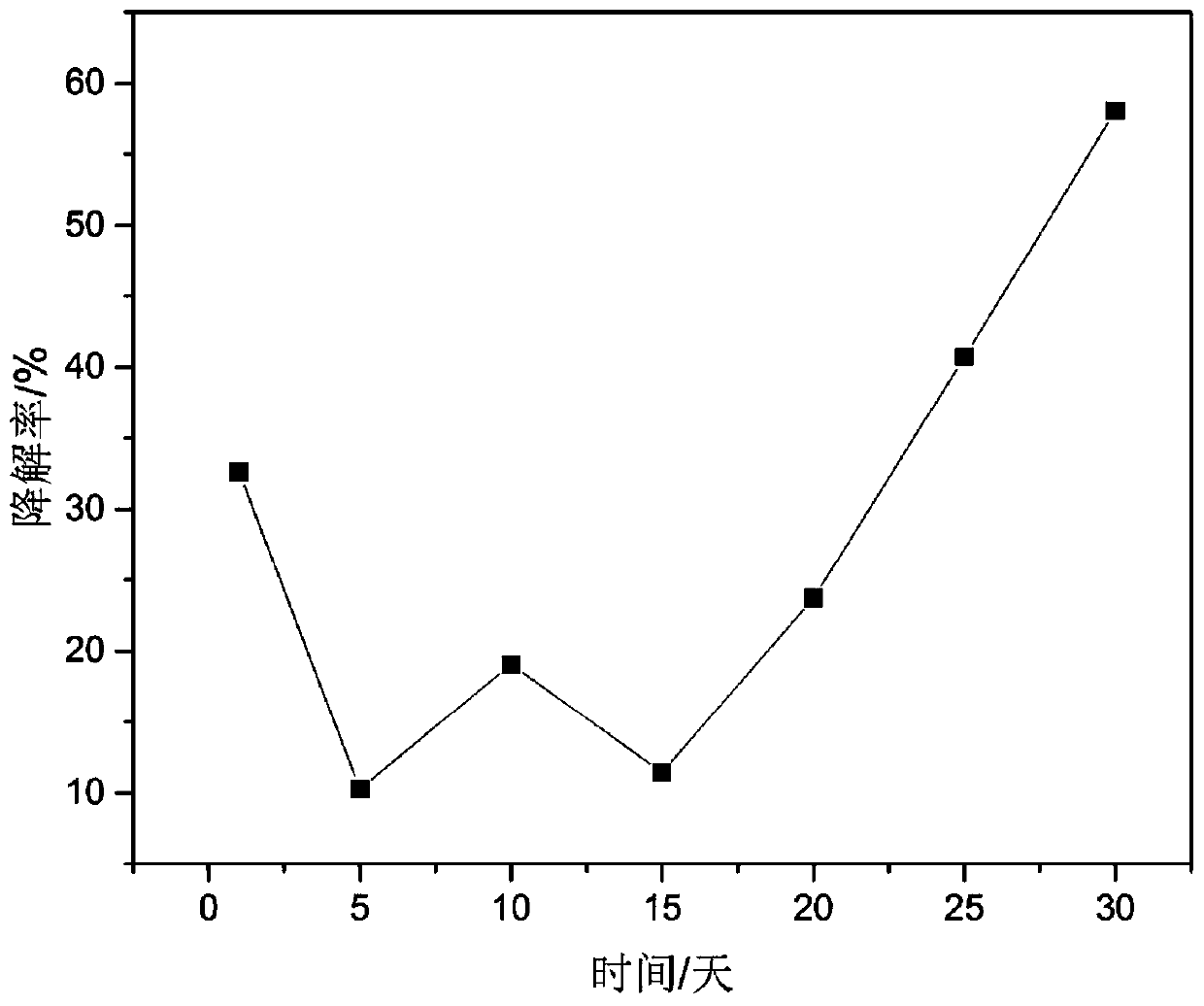A kind of bacterial strain jn1 for degrading petroleum hydrocarbons in oily sludge and its application
A technology of JN1 and bacterial strains, applied in the field of bioremediation, can solve the problems of no large-scale application, cumbersome cultivation process operation, and large influence of environmental factors, so as to avoid complex reaction products, optimize soil microbial system, and enhance biological activity.
- Summary
- Abstract
- Description
- Claims
- Application Information
AI Technical Summary
Problems solved by technology
Method used
Image
Examples
Embodiment 1
[0055] Example 1: Degradation and repair test of oily sludge in Liaohe Oilfield
[0056] Oily sludge from Liaohe Oilfield was taken, air-dried and ground, passed through a 1mm sieve, and set aside. Pick a single colony in sterilized LB liquid medium, seal it with a gas-permeable sealing film, place the Erlenmeyer flask in a shaker at 120 rpm, and activate at 30°C for 24 hours. Weigh 40g of the above-mentioned air-dried, ground and sieved oily sludge, add 10% inoculation amount of Acinetobacter sp.JN1 activated bacterial solution with OD600=1, adjust the water-to-soil ratio to 2:5 with inorganic salt medium, and seal it with air-permeable Membrane seal. All Erlenmeyer flasks were placed in a constant temperature incubator at 30°C for static cultivation, samples were taken every 5 days, and the content of total petroleum hydrocarbons in the oily sludge was measured with an infrared spectrophotometer. The degradation curve is shown in the attached image 3 shown. It can be see...
Embodiment 2
[0060] Example 2: Degradation effect of Acinetobacter sp.JN1 on petroleum hydrocarbons in oily sludge at different pH values Oily sludge from Liaohe Oilfield was taken, air-dried, ground, and passed through a 1 mm sieve. Weigh 40 g of the above oily sludge in a conical flask, and use dilute H 2 SO 4 and NaOH to adjust the pH of the soil to be 1, 3, 5, 7, 9, 11 respectively, add the activated bacterial liquid of Acinetobacter sp.JN1 with OD600=1 according to the inoculation amount of 10%, and adjust the water-soil ratio to 2:5 with distilled water, Seal with breathable parafilm. All the Erlenmeyer flasks were placed in a constant temperature incubator at 30°C for static cultivation and samples were taken after 25 days, and the total petroleum hydrocarbon content in the oily sludge was determined by an infrared spectroscopic oil analyzer. The degradation effects of strain Acinetobacter sp.JN1 on petroleum hydrocarbons in oily sludge under different pH conditions are as follo...
Embodiment 3
[0061] Example 3: Degradation effect of Acinetobacter sp.JN1 on petroleum hydrocarbons in oily sludge at different temperatures
[0062] Oily sludge from Liaohe Oilfield was taken, air-dried, ground, and passed through a 1mm sieve. Weigh 40g of the above oily sludge into an Erlenmeyer flask, add 10% inoculation amount of Acinetobacter sp.JN1 activated bacterial solution with OD600=1, adjust the water-soil ratio to 2:5 with distilled water, and seal it with a breathable sealing film. The Erlenmeyer flasks were placed in constant temperature incubators at 10°C, 15°C, 20°C, 25°C, 30°C, 35°C, 40°C, 45°C, and 50°C for static culture, and samples were taken after 25 days. Spectrophotometer was used to determine the total petroleum hydrocarbon content in oily sludge. The degradation effect of strain Acinetobacter sp.JN1 on total petroleum hydrocarbons in oily sludge at different temperatures is as follows: Figure 5 shown. Depend on Figure 5 It can be seen that the strains of th...
PUM
 Login to View More
Login to View More Abstract
Description
Claims
Application Information
 Login to View More
Login to View More - R&D
- Intellectual Property
- Life Sciences
- Materials
- Tech Scout
- Unparalleled Data Quality
- Higher Quality Content
- 60% Fewer Hallucinations
Browse by: Latest US Patents, China's latest patents, Technical Efficacy Thesaurus, Application Domain, Technology Topic, Popular Technical Reports.
© 2025 PatSnap. All rights reserved.Legal|Privacy policy|Modern Slavery Act Transparency Statement|Sitemap|About US| Contact US: help@patsnap.com



